Recently updated on October 21st, 2025 at 08:54 pm
Greece: the cradle of Western Civilisation. The birthplace of democracy, theater, the Olympic Games, and much more. Today, we all know Greece for its ancient history, incredible food, and gorgeous island landscapes… But here are a few things you might not know yet. These are 14 fun facts about Greece to fascinate your friends and help you learn more about this amazing country.
Unlock the best of Greece for less, saving up to 15%* with September on Sale
1. Greece is made up of thousands of islands
You’ve probably heard of Santorini, Mykonos and Crete… But did you know that Greece is made up of thousands more beautiful islands? It is estimated that Greece is home to up to 6,000 islands and islets, and people live on only around 200 of them.
Discover Greece’s gorgeous islands on Greek Island Hopper
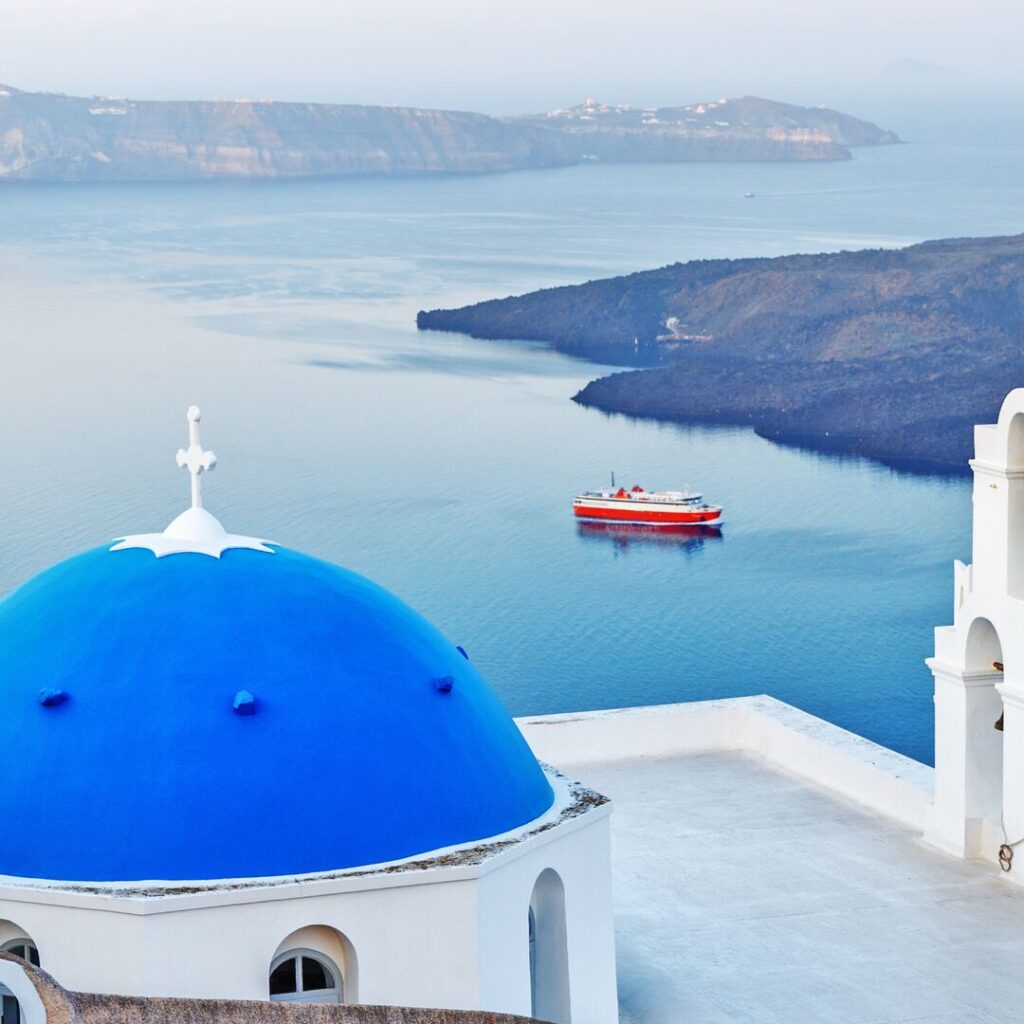

2. Greece has 19 UNESCO World Heritage Sites
If you love visiting heritage sites you’re in for a treat in Greece. The country is home to 19 UNESCO World Heritage Sites, including world-famous sites like the Acropolis of Athens, the Temple of Apollo, Meteora, and the Old Town of Corfu. History buffs, make sure you include Greece on your European tour.
We think you’ll also like: Our guide to Greece: everything you need to know
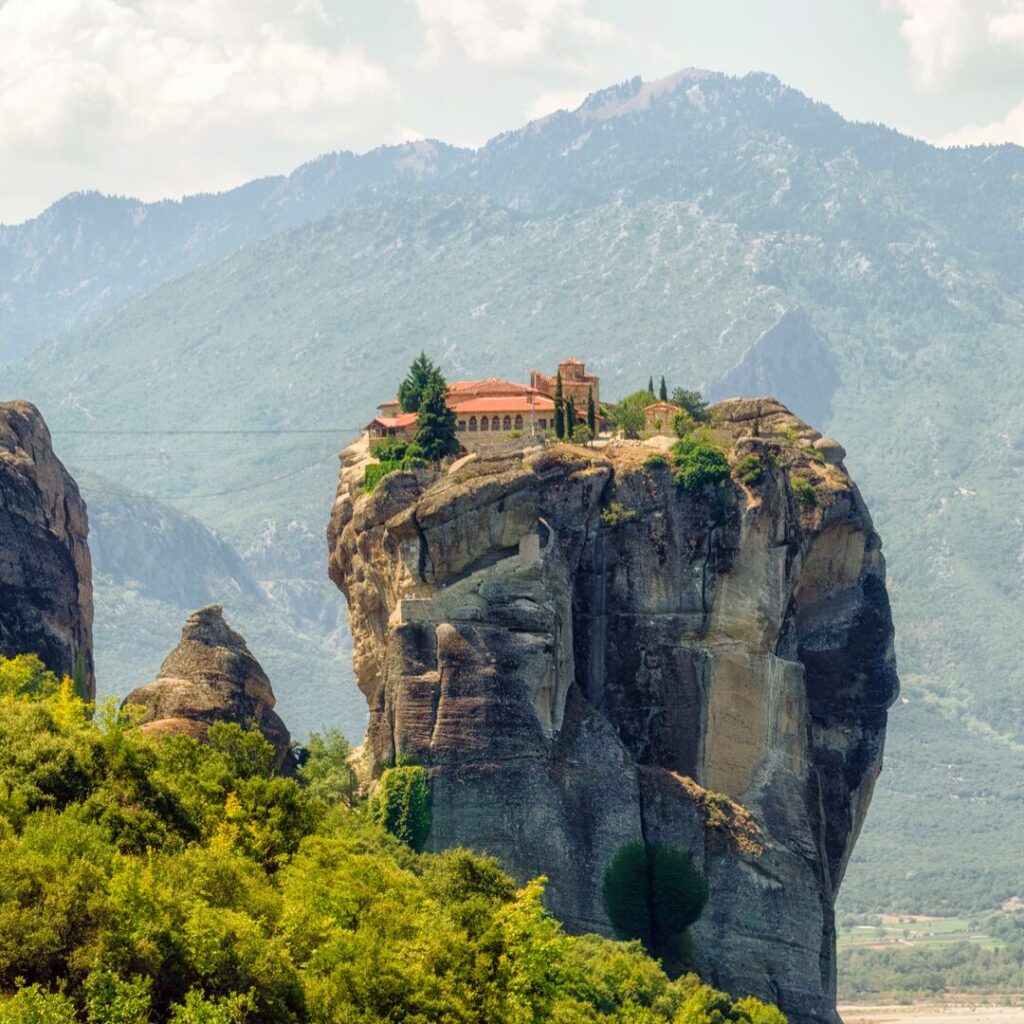

3. 80% of Greece is made up of mountains
When you think of Greece, you probably picture sandy shores, blue oceans, whitewashed buildings and blue domes. But one of the most surprising facts about Greece reveals that the majority of the country is actually mountains – namely the Pindus mountain range. It’s one of the most mountainous countries in Europe, with 80% of the country covered in mountains. Don’t forget to pack a good pair of walking shoes!
Discover gorgeous landscapes and save up to 15%* on amazing trips like Best of Greece
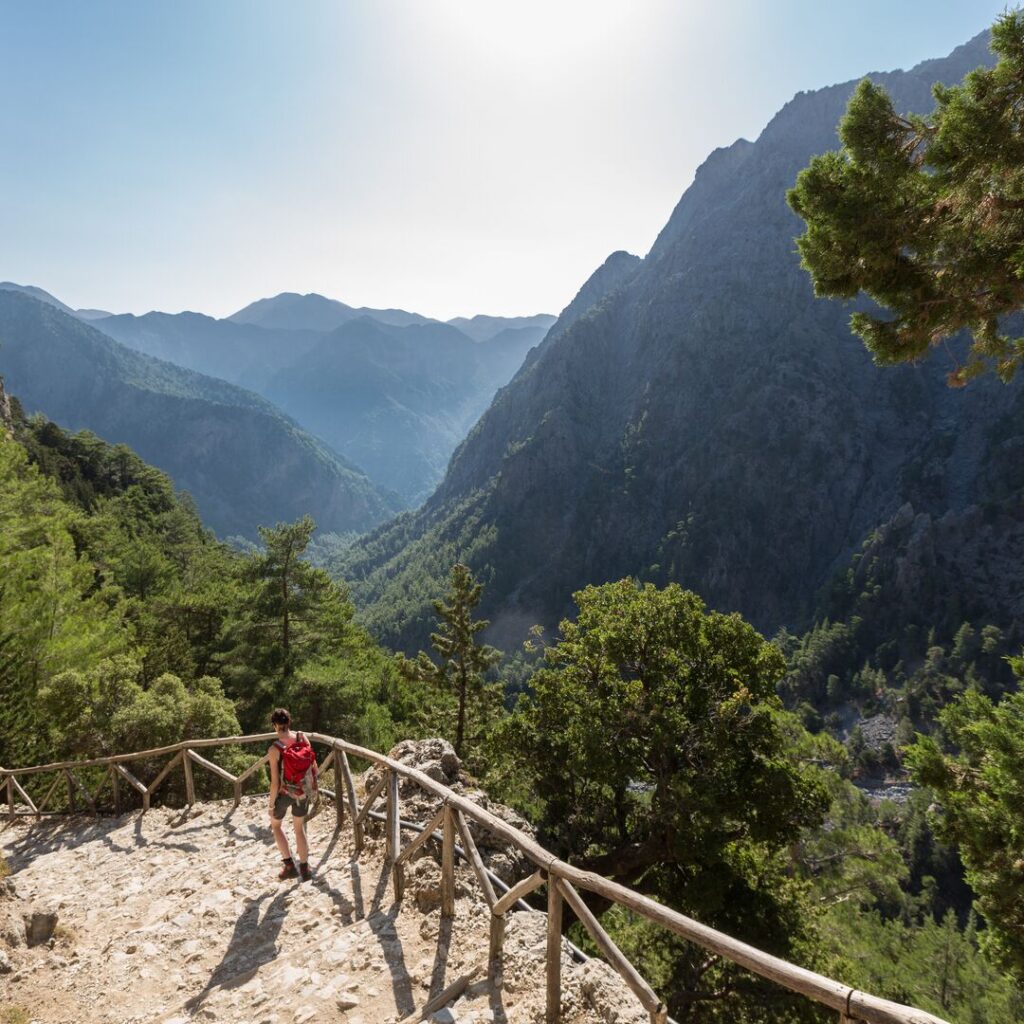

4. No part of Greece is more than 137 kilometres away from the ocean
Greece may be 80% mountains… But if you associate a beautiful Mediterranean sea with Greece, you’re also right! Greece has the longest coastline on the Mediterranean Basin and the 11th longest coastline in the world, with an impressive coastline of 16,000 kilometres (9,942 miles), making it the 10th longest coastline in the world. With The Aegean Sea to the east, the Mediterranean Sea to the south and the Ionian Sea to the west, no part of the country is more than 137 kilometres (85 miles) away from the ocean. That’s a lot of water!
We think you’ll also like: 11 idyllic movies to get you inspired for your next trip to Greece


5. Greece has a diverse array of wildlife
With all those incredible coastal and mountainous landscapes, it’s no wonder that Greece is home to some of the world’s most unique animals. Some animals are even found only on specific Greek Islands, including seals, turtles, frogs, lizards, snakes, fish, butterflies, mice, and even the Kri-kri (the Cretan Wild Goat). Some fun facts about Greece for birdwatchers – there are 240 bird species in the country. Consider planning your trip for winter as this is when over 100,000 birds and hundreds of birds migrate to the wetlands of Greece each year.
6. More tourists visit Greece every year than the entire Greek population
It’s no secret that Greece is one of the world’s most popular countries to visit. But did you know that over 33 million tourists visit Greece each year? That’s more than triple the total population. It’s one of the only countries in the world with tourist numbers that triple its population. Tourism makes up around 20% of Greece’s GDP, which is also one of the highest percentages of any industrialised country.
Discover the hidden Secrets of Greece including Corfu
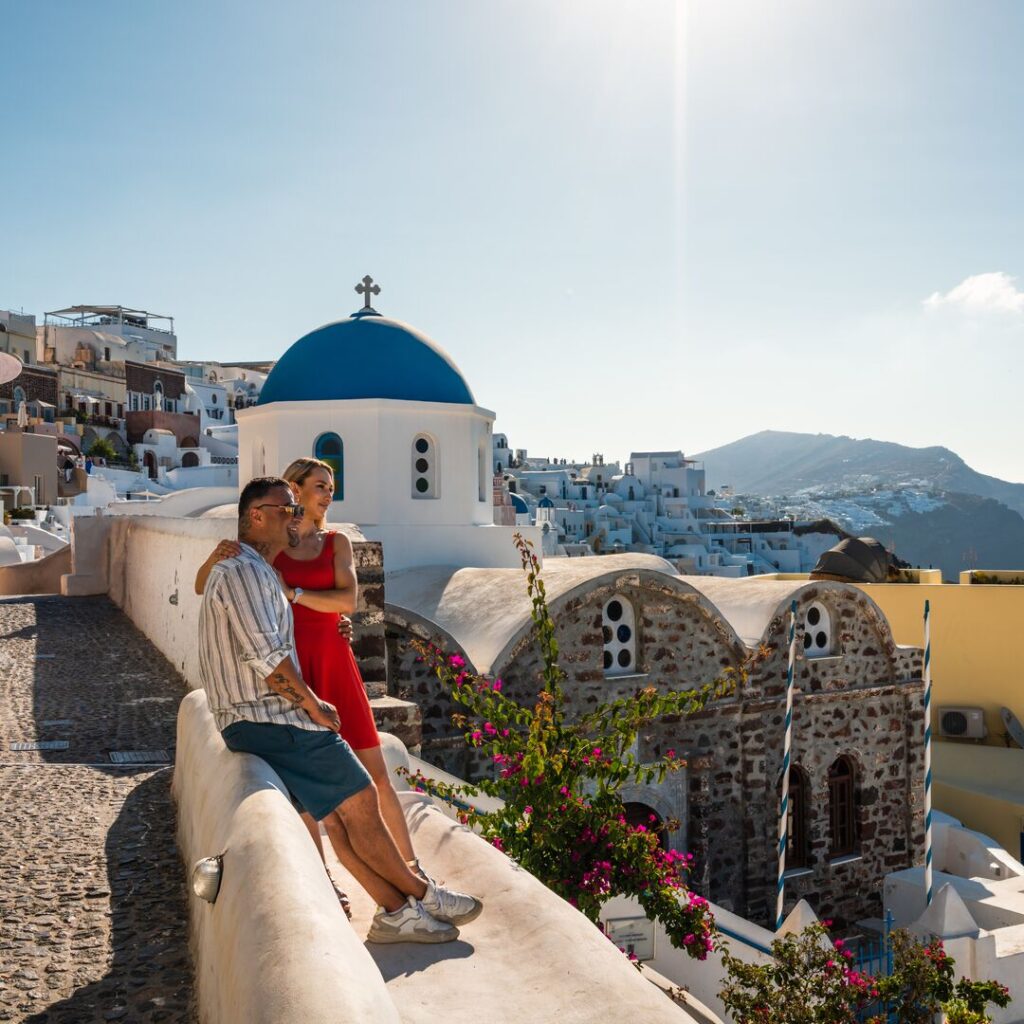

7. The capital of Greece is named after the goddess Athena
Athena is the Goddess of wisdom and warfare – and the Patron of Athens. According to Greek Mythology, Athena and Poseidon fought over the right to name the city, and the Greeks chose Athena to be the Patron of Athens. Both gods offered the people a gift, with Athena gifting an olive tree and Poseidon offering water, but the people chose the olive tree as it was of a higher value since it could provide oil, food and wood.
We think you’ll also like: These tours and destinations are purrfect for cat lovers
8. Greece is the fifth largest producer of olives
The olive tree continues to be a big part of Greek culture to this day… The country has over 120 million olive trees and produces 1.2 million metric tons of olive oil every year. That makes it the fifth largest producer of olive oil in the world, after Spain, Italy, Morocco and Turkey. Greece also produces more varieties of olives than any other country. One of the most interesting facts about Greece and olives is that some of the country’s olive trees that were planted in the 13th century are still bearing fruit today.


9. Athens has more theaters than any other city in the world
They say the world’s a stage – and that’s certainly true in Athens! With 148 theatrical stages, the city has the most theatrical stages in the world, even beating out London’s West End and New York’s Broadway. It’s fitting for Athens to hold this title since it’s the place where the art of acting and theater was born.
We think you’ll also like: How to pack light for a trip to the Greek Islands
10. There are more than 4,000 traditional dances in Greece
With all those theatrical stages, there’s bound to be some dancing in Greece. In fact, the Greeks love dancing so much, there are over 4,000 official traditional dances in Greece. They originate from all over the country, so you’re to find a place where you can kick up your heels on your trip to Greece.
Read next: The Best Places to Visit in Greece
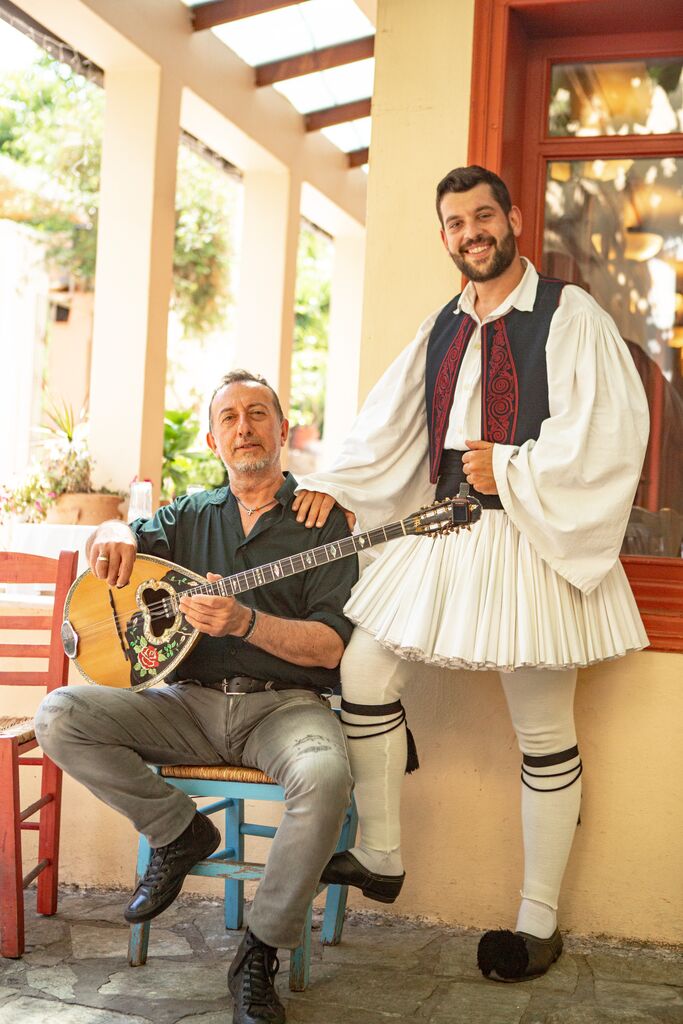

11. It’s one of the sunniest places in the whole world
One of our favourite facts about Greece is that it’s one of the world’s sunniest countries, basking in more than 250 sunny days – or 3,000 hours of sunshine – each year. Some islands even see around 300 days of sunshine a year. Don’t forget to pack your sunscreen!
We think you’ll also like: Step through the history books in these 5 ancient towns in Greece
Chase the sun in Greece with September on Sale
12. There are more archaeological museums in Greece than any other country
With more than 110 archaeological museums, Greece takes out the top spot for the most in the world. From the Acropolis Museum and the National Archaeological Museum in Athens to the archaeological sites of Delphi and Olympia, you’ll find some of the world’s most important and remarkable collections of Greek antiquities here.
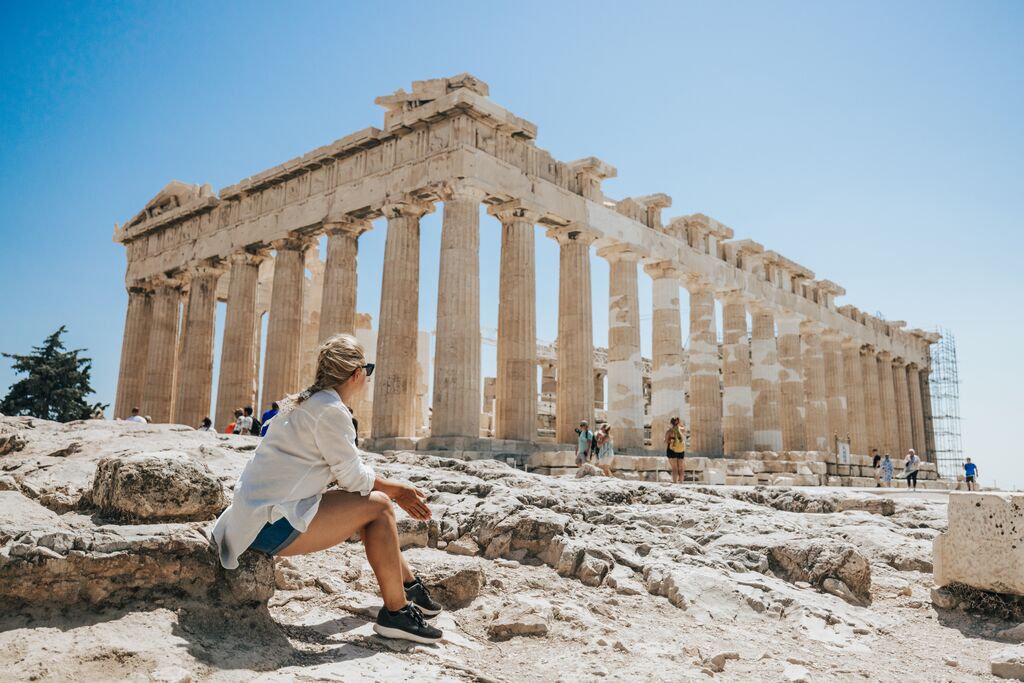

13. It has another name
A fun fact about Greece is that the country’s official name is the Hellenic Republic. Greeks are known as Hellenes and they call their country Hellas, an ancient Greek word. These original terms were used until the Byzantine period when Roman rulers named the Hellenes ‘Graecus’ from ‘Graecia’. Today, Greece is once again officially known as the Hellenic Republic.
We think you’ll also like: 9 must-see places to see in Europe for your bucket list
14. Greek is one of the oldest languages still in use
The Greek language is considered to be one of the oldest written languages still in use today. Based on archaeological findings, it’s believed to have been used continuously for over 5,000 years. Greek has also had a huge influence on English and other Latin-based languages. Before you head off to Greece, try learning a few Greek phrases – it will be appreciated by the locals and is sure to enrich your travel experience in this amazing country.
If you’re considering a trip this ancient land of sun, sea, and souvlaki, then take a look through our range of Greece tours. Here, you’ll unlock the best of Greece’s charm through its people. Break bread with lively locals, be welcomed into small island communities, and take home with you a little piece of how to live the Mediterranean way.
15. Olympic games
The first ever Olympic Games were held in Greece over 2,700 years ago in Olympia. Like today they took place every four years, with around 50,000 people coming from across Greece to take part and spectate. They weren’t just a sporting event, but a religious festival held in honor of Zeus, king of the Greek gods. There were no medals in these ancient games, but winners were seen as touched by the gods and given a wreath of leaves – and plenty of glory, of course.
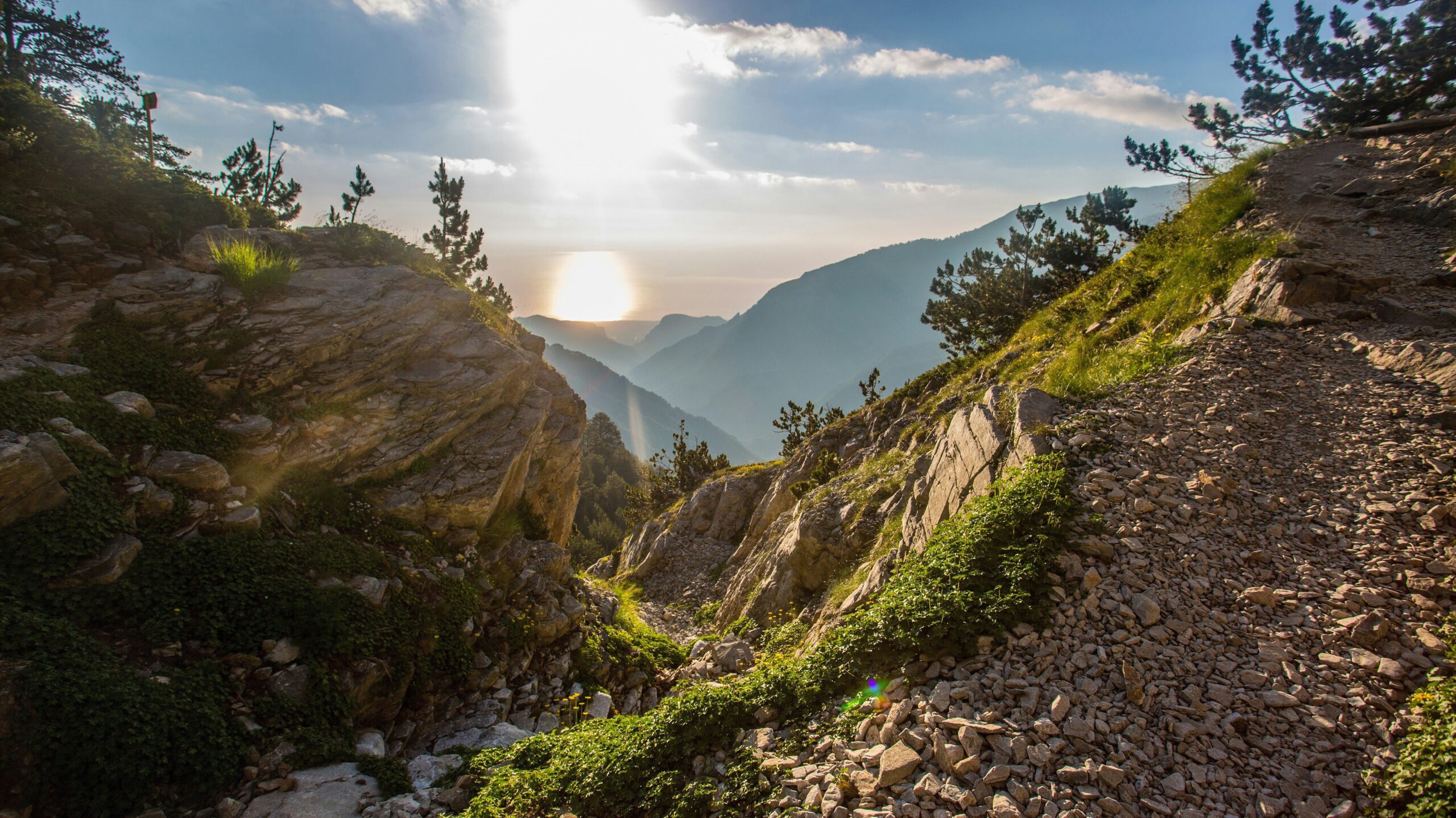

16. Greece’s tallest mountain is Mount Olympus
Mount Olympus is the highest mountain in Greece, and was the home of the gods and the site of the throne of Zeus in Greek mythology. It climbs 9,570 feet (2,917 meters) above sea level. It is part of the broader Olympus mountain mass near the Thermaic Gulf on the Aegean Sea. The region was also the first National Park in Greece, gaining its status in 1938 – the entire Olympus area covers around 500km².
17. Greece was a founding member of the European Union
Greece was one of the founding members of the European Union (EU), and became the 10th member when it joined in 1981 – though Greece only adopted the Euro in 2001.
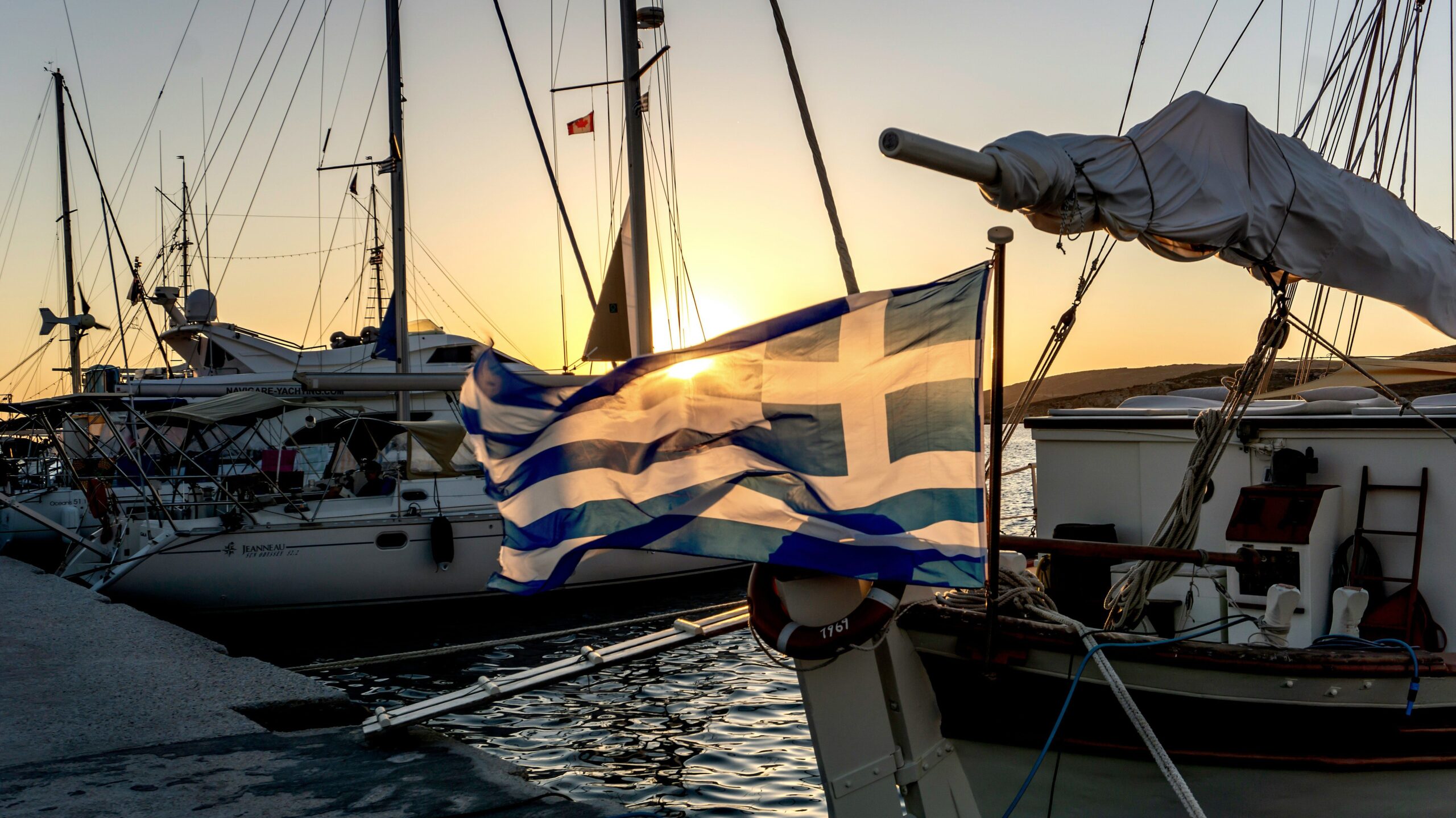

18. Ancient Greek philosophers shaped the world
There were many Greek philosophers, the most well-known being Socrates, Plato and Aristotle (thinkers like Thales, Heraclitus and Epicurus were as influential, but not as popular). Their ideas helped form and continue to shape much of Western philosophical discourse, spanning ethics, metaphysics, epistemology, and politics, touching on a range of different ideas from human nature to ethics and moral dilemmas.
19. Greek was the original alphabet
The Greek alphabet is over 2,500 years old, and its 24 letters made the foundation of many modern alphabets like Latin. The word ‘alphabet’ itself comes from the first two letters of the Greek alphabet, alpha and beta!
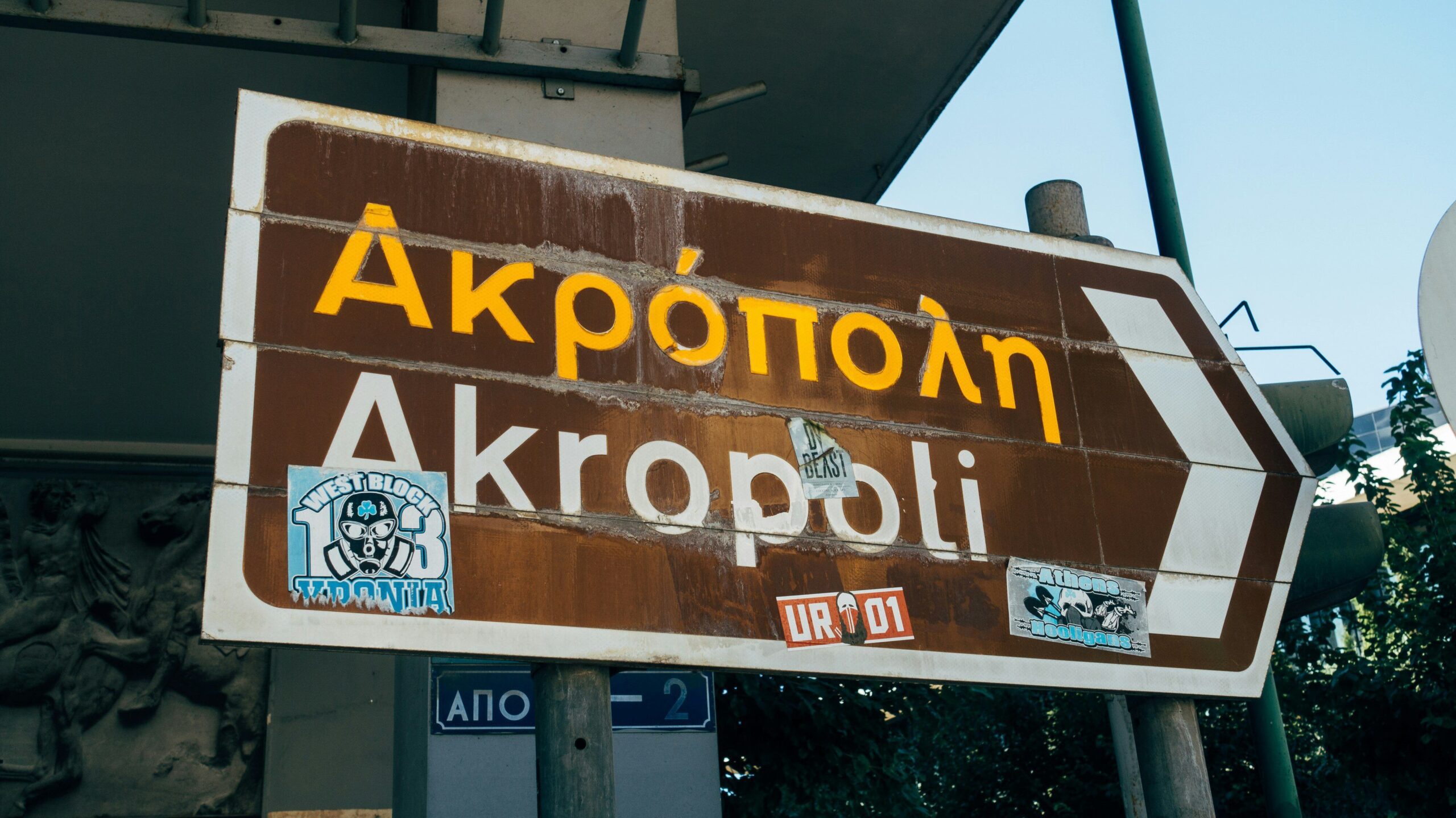

20. The Minoans were one of Europe’s earliest known civilisations
It wasn’t just the alphabet that the Greeks were first at – the Minoan civilisation (named after the mythical King Minos, a son of Zeus) on the island of Crete is one of the earliest recorded civilisations in Europe, and boomed from 3000 to 1100 BC. Though little is known about Minoan society, we do know that they developed two writing systems and created a wealth of art from pottery, figurines and frescoes centering on themes of nature.